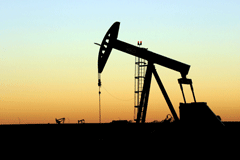
Over the years, Alberta Premier Ralph Klein has rarely missed an opportunity to poke a finger at the equalization program and to re-assert that Canada better keep its hands off Alberta's resource wealth. For King Ralph, it makes for great theatre and even better politics.
Klein recently threatened to pull out of the equalization program if necessary in order to defend Alberta's riches. Klein has habitually characterized equalization as taking money out of Alberta's pocket to give to the "have-nots," a bit of misinformation that had until recently passed straight through the media without any fact-checking.
But with more and more eyes focused on the issue of the so-called "fiscal imbalance," equalization being one of the pieces on the table, Klein did not get away with his comment this time.
Equalization is a federal program, paid for through federal taxes. Alberta's government does not cut Ottawa or any other province a cheque each year. To the extent that Alberta pays more than other provinces, it is because Alberta has more taxpayers with high incomes.
So Alberta could not pull out of equalization, even if it wanted to. Moreover, the program that Klein loves to hate is enshrined as section 36(2) of The Constitution Act, 1982:
Parliament and the government of Canada are committed to the principle of making equalization payments to ensure that provincial governments have sufficient revenues to provide reasonably comparable levels of public services at reasonably comparable levels of taxation.
Albertan karma
The delicious irony in all of this is that Alberta is one of the main reasons we have an equalization program in the first place.
Back in the Great Depression of the 1930s, the governments of Alberta and Saskatchewan flirted with bankruptcy. Their hardship led to the creation of the Royal Commission on Dominion-Provincial Relations, also known as the Rowell-Sirois Commission, to put federalism under the microscope. In its 1940 report, the Commission noted that:
The quality of education and welfare services is no longer a matter of purely provincial and local concern. In Canada today, freedom of movement and equality of opportunity are more important than ever before, and these depend in part on the maintenance of at least minimum national standards for education, public health and care of the indigent. The most economically distressed areas are the ones least capable of supporting these services, and yet are also the ones in which the needs are likely to be greatest.
Over the next couple of decades much of the Rowell-Sirois Commission's work was put into practice, including the launch of the equalization program in 1957. In the early years, Alberta was a recipient province, and arguably federal supports helped shape today's Alberta.
Oh, how the tables have turned. Alberta discovered oil at Leduc in 1947, and now is awash in petrodollars. The real imbalance in today's federalism is the distortionary impact of resource royalties on provincial finances. This is most notable in Alberta, but also a factor for B.C., Saskatchewan and, increasingly, Newfoundland and Nova Scotia.
Consider that, in 2004/05, the Alberta government received just shy of $10 billion in resource royalties. Astonishingly, these royalties covered a full 40 per cent of Alberta's budget expenditures. Without resource royalties, Alberta's $5 billion budget surplus would have been a $5 billion deficit.
'Beggar thy neighbour'
Resource royalties have thus been a powerful tonic for Alberta's fiscal situation. Unlike other provinces, Alberta has not needed to institute a provincial sales tax. Alberta has been able to afford the right's dream of a flat income tax. More recently, Alberta's surpluses have paid down its provincial debt. And, to top it off, Alberta can afford to pay top dollar to attract public service professionals, such as doctors, nurses and teachers.
What is of concern for the rest of Canada is that Alberta is engaging in what economists call "beggar-thy-neighbour" policies with regard to taxes. As Alberta drives tax rates down, other provinces feel compelled to follow, so that businesses are not lured away to the oil patch. The flipside is that, to stay "competitive," they risk seriously underfunding public services.
While resource royalties are the major source of imbalance, the fact that they are not part of the federal revenue base makes it challenging to fully address through equalization. This reflects Ontario Premier Dalton McGuinty's complaint -- that an increase in the size of equalization would be financed in large part by Ontario, a non-recipient province, who, if anything, is being adversely affected by today's high commodity prices that are feeding Alberta's treasury.
Balancing the scales
One answer to this problem is to have some part of equalization financed among the provinces themselves through a resource revenue-sharing pool. Another would be to re-institute national policies in areas such as energy so that all households and businesses can benefit from Canada's natural resources.
It is unlikely, to say the least, that Alberta would agree to such a plan. But these are the types of ideas that ought to be on the negotiating table.
This is not about being anti-Alberta; it is about being pro-Canada. Sharing the wealth made sense 50 years ago, and it still does today.
Marc Lee is a senior economist with the B.C. office of the Canadian Centre for Policy Alternatives, and is the author of Tax Cuts and the "Fiscal Imbalance," available at www.policyalternatives.ca. ![]()
















Tyee Commenting Guidelines
Comments that violate guidelines risk being deleted, and violations may result in a temporary or permanent user ban. Maintain the spirit of good conversation to stay in the discussion.
*Please note The Tyee is not a forum for spreading misinformation about COVID-19, denying its existence or minimizing its risk to public health.
Do:
Do not: